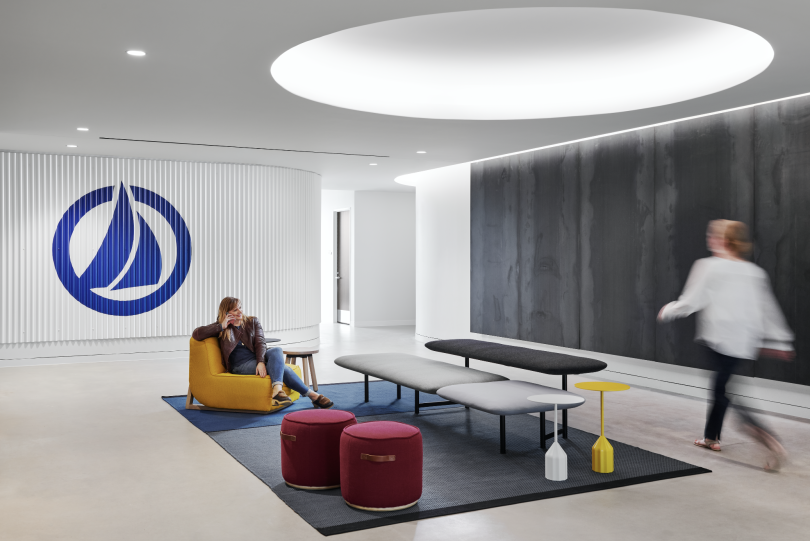Ensuring team members have the relevant work tools at their disposal is by no means a fresh concern. However, as Ayan Basu, senior manager of product management at SailPoint observed, the changing work landscape brings concerns of identity security more prominently to center stage.
“These days, with everything in the cloud — and COVID-19 has certainly accelerated that trend — protecting assets is even more important. With people working from home, things inherently become more exposed, and the threat levels increase,” Basu said.
It’s certainly a timely consideration. Consider intelligence such as Forrester’s Predictions 2021 report: Released last fall, the report predicted “remote work will rise to 300% of pre-COVID levels,” as well as predicting that 30% of organizations will increase investments in the cloud and “security and risk” in 2021. As a team member of the Austin-based identity security company catering to enterprise companies on the cloud, Adeline Chew identified how a shifting landscape may impact what’s in the cards for SailPoint’s business.
“It’s important to make sure companies feel safe about their employees operating from home,” Chew, an engineering manager focused on reliability and performance, said.

After completing its acquisition of Intello, which offers SaaS management capabilities, and ERP Maestro, which specializes in risk and compliance software, earlier this year, SailPoint now has greater resources to navigate the space. “Seeing where the market’s headed and what our customers need — those acquisitions offer us a path to get there sooner, rather than later,” Basu said.
With the acquisitions fresh, the company is staffing up, an opportunity that team members described as furthering potential for innovation. “With more people we have more capacity to solve problems and take risks,” said Senior Engineering Manager Becky Tran, who manages the access, requests and approvals engineering team.
Below, the trio highlighted current key projects, why the company’s core value of innovation enhances the professional experience and more.
What’s something your respective teams are currently working on that’s exciting to you?
Tran: Our team interfaces with all the teams a lot because access requests and approvals are a core part of the product. We want to be proactive and save our customers time. For example, can we send alerts that this person may not have access that they shouldn't? These are some of the questions my team is going to be investigating with our machine learning product and other new products that are coming out.
Chew: We're currently working on enabling application performance management or monitoring so that we can be more proactive in identifying potential issues. We’re improving our metrics and alerts so we will be able to identify when an issue is about to arise, address it before a customer contacts us and use the tracing data to predict potential improvements on our side.
Basu: One big initiative is around workflow automation, building a drag-and-drop workflow capability for our products to help customers solve their challenges. It gives them the flexibility and integration capability to get the most out of our product and embed our product into their ecosystem of applications. The long-term plan is to focus on the low-code/no-code aspect of it. The other big area is around enhanced business intelligence for customers.
Identity Management 101
Innovation is one of the company's core values. What does innovation mean to each of you? And how does that impact your respective teams’ work?
Tran: Innovation at SailPoint is also about curiosity. We have a lot of subject matter expertise to build on, but we also have a lot of new people who can look at things from a different angle. SailPoint gives us the opportunity to explore the space in unique ways and solve things in different ways for our customers.
Chew: We get the opportunity to explore new technologies, ideas, processes and products. A core value of innovation allows us to explore new things to address new problems and new challenges that arise in effective and efficient ways.
Basu: The future of what we do is going to revolve more and more around keeping our customers’ and partners’ core data safe and secure. I think what you'll increasingly see is a lot of joint innovations with other software and security vendors to protect all that is sensitive within the boundaries of where a company operates in the cloud.
SailPoint has a lot of different problems to solve, which have a bunch of different ways to solve them.”
What does making your platform more open and extensible mean for engineers?
Tran: Managing dependencies can be complicated. By having good standards for our APIs, teams can engage in initiatives without slowing things down and involving a big group of engineers. Ultimately, that allows for more complexity in the product without more complexity from an engineering organization. By being API-first, we can get feedback very quickly about what works and what doesn't.
Chew: We work very closely with the platform team. Even though they own the platform, it's very accessible and open to other teams. We can say, “We want to standardize how metrics are being rendered for each team.” Those changes would automatically be absorbed into all the microservices to extend the service. It allows for standardization, collaboration and easy integration.
Basu: From a development perspective, the things that we're doing from a platform point of view are making engineers’ lives easier. Our APIs are in much better shape. When other teams want to build stuff, there are reusable services that they can take advantage of and they can readily integrate. Development is becoming more optimized with our SaaS services. Not only are we making our external partners' lives easier, but we have a strong internal focus as well.
Sailpoint's Toolbox
How do SailPoint’s recent acquisitions of ERP Maestro and Intello set the company up for success?
Tran: ERP Maestro’s solution really works hand in hand with ours and opens up a few new technologies. The acquisition pushed forward our research far faster than we could have done on our own. Now we have a new take that expands how we look at separation of duties.
Basu: Intello’s SaaS management gives us a lot of new areas to innovate in. There are thousands of new applications that are being built and deployed. SaaS management does a really good job of identifying all those applications that employees could potentially be using.
Lastly, we hear that your teams are growing significantly. What can new hires look forward to?
Tran: Because we interact with so many other teams, and as we get more and more customers on board, the amount of opportunity for my team is huge. At SailPoint, we really listen to new people and really push them just as much as we push our veterans.
Chew: The exciting thing for engineers joining the performance and reliability team is that since we're still in the initial phase of getting things set for us to be able to be proactive, they would have the opportunity to help drive the direction of the technology and explore new options to see how they would solve the problems we need to solve.
Basu: As the platform ecosystem grows, we need more people to build new capabilities. For example, we're building a whole new connectivity layer that enables connections to happen in a smooth low-code way, meaning we want non-technical people to also be able to build these connections. Those new initiatives are exciting.








